
|
The Te Matatini app was produced for the 2019 Te Matatini event (the National Kapa Haka championships) which is undoubtedly one of the most significant events on the Māori calendar. It’s a fantastic app that bundled all the information that attendees (and online/television viewers) needed to enjoy the festival. The app included details of the judges and competitor groups, a map, links to the shops present onsite and to social media pages for the event. It even included a haka translate feature into English and Mandarin. A favourite feature is a section which encouraged the use of Te Reo Māori by offering tutorials, competitions, a treasure hunt and prizes. This is definitely one of the best apps that is totally supportive of Te Ao Māori (the Māori world) and Te Reo Māori (The Māori Language) for language learners and those who do not have knowledge of Te Reo Māori. Overall, this is an extremely functional app that is very inclusive of all users. |

|
The PukapukaKore app is a tribute to the lifelong work of Dr Joseph Te Rito. It is a collection of radio recordings of Ngāti Kahungunu native speakers. This app provides the audio recordings, a glossary and transcripts of the recordings. It’s an invaluable resource for advanced learners of Te Reo Māori with authentic native speaker exemplars of the Ngāti Kahungunu tribe. This is a unique example of Ngāti Kahungunu dialectical language and in that regard, it is a taonga (treasure) to be used now and in the future. This app stands out from the rest as a learning resource that includes glossaries and transcripts as valuable tools for second language learners of Te Reo Māori. |

|
The Te Aka Māori2English – English2Māori Dictionary app is a great resource for learning Te Reo Māori. It has a huge searchable database which makes it the “go to” app for beginners and fluent speakers. Features include sound files for pronunciation and example sentences make this app invaluable for the second language learner of Te Reo Māori. The example sentences are particularly useful when trying to select the correct word to use when there are multiple entries with similar meanings in English. |
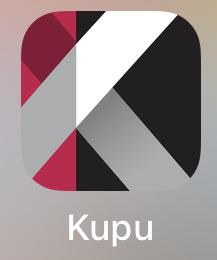
|
The Kupu app was sponsored by Spark and released in 2018 for Māori Language Week using Google image technology and content in the Te Aka Māori2English – English2Māori Dictionary app (see above). When you point your smartphone camera at an object the app suggests words that pertain to the object. Sound files for each word which are sourced from the Te Aka app are very helpful. Using this app in the home and workplace offers opportunities for regular pronunciation practice and vocabulary development for every-day use with whānau (family), friends and workmates. |
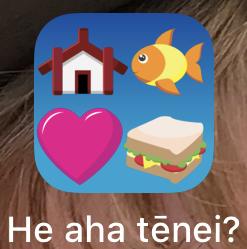
|
The He Aha T ēnei app is a very popular app for whānau (family) and tamariki (children) to use together. It presents each word to learn in answer to the question “He aha tēnei?” (What is this?). The word is shown as an image and the user must drag and drop each syllable into place. The word is then pronounced slowly then at a normal speed. The sound is in a child’s voice. This app is great for whānau (families) wanting to start to introduce some Te Reo Māori words in and around their home. |
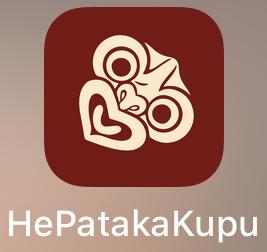
|
The He Pātaka Kupu app is the only Māori2Māori language dictionary in app form for users. It is funded by The Māori Language Commission. This is a great resource for intermediate to advanced second language learners and fluent speakers of Te Reo Māori. Each entry contains a definition of the word in Te Reo Māori, followed by an example sentence and a list of other words with related/similar meaning. Overall this is a very handy app for advanced speakers of Te Reo Māori. It is great to see an app like this available as there are not many apps fully in Te Reo Māori for speakers of the language. |
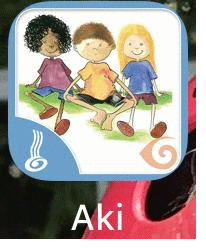
|
Kiwa Digital, a kaupapa Māori media company, have produced an extensive array of interactive books in the form of apps. The Aki app and the Little Bird app are included as Kiwa Digital exemplars. These two apps are awesome with functional features that include tapping on a word to hear its pronunciation and meaning, swiping the words on a page to have the app read it to you, and a full English version of the text as well. The images on each page are good quality. The user can also colour in a black and white outline version of each page. These apps are very appealing to children, and are very useful as a resource for second language learners of Te Reo Māori. |
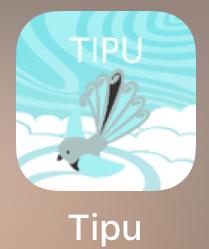
|
The Tipu app was funded by the Māori Language Commission. It is designed to be a vocabulary building app with a memory which means that you are retested on the words until you have demonstrated mastery. There is no images for the words which makes this app unfriendly for the visual learner. Although the soundbites of each word for pronunciation are helpful, accessing an English translation for each word using a question mark icon is clunky. This app is ok for vocabulary development, but really only suitable for beginner learners as there are no sentence structures involved and the format is very repetitive. |
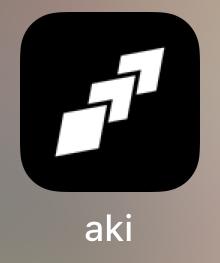
|
The Aki app is another vocabulary building app which also includes phrases to learn as well. This app has come out of Otago University and Ngā Pae o Te Māramatanga. The user can play against other users of the app or use the app on multiple devices. You have to master all the words in one “location” (each location has a theme for the vocabulary) before moving to the next location. It’s fun to play against each other for about three locations, but with the increased difficulty, the experience becomes more vocabulary learning than for useful productive output. |
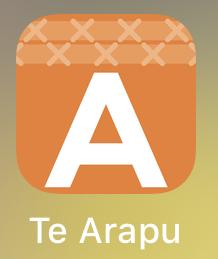
|
The Te Arapu app is a cute app with it’s catchy theme song, however it has many aspects that aren’t so functional. The Ministry of Education released this app to help children learn the Reo Māori alphabet. However all the instructions are in Te Reo Māori so it’s not user-friendly at all unless teachers are advanced enough to help the children use the app. This app is more suitable for Kohanga Reo (Early Childhood Māori Language Nests) or for Junior School students in Kura Reo Māori (Māori-medium schools). The app does not rotate and requires a lot of dexterity to use. The games are not particularly user-friendly for young children learning as they either move too quickly or make no sense. |
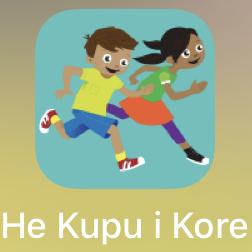
|
The He Kupu i Kore app is another Ministry of Education release. It is designed as a vocabulary builder where the user has to swipe or tap on the diagraphs (eg Kō + TI + RO) after being shown the whole word. Whilst useful for spelling words, there are no pictures/images to show what each word means and an absence any English in the app. This app has good reviews amongst Māori speaking users, however it would be beneficial to at least include images for each word so that the app could be used by a wider user base. |
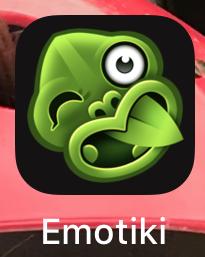
|
The Emotiki app is another cute app that allows smartphone users to add kiwiana themed emojis to their messages and other social media platforms from their phone. The app was developed by Te Puia in Rotorua. It is positive in that it supports Māori culture and it’s a free app. It includes over 200 icons. Many Māori users of the app include the Emotiki emojis in their social media comms. This app is gimmicky in a practical sense and the Emotiki emojis are culturally creative expressions of lived experiences. |
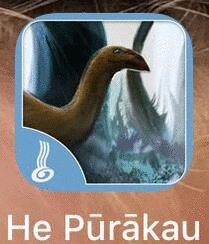 |
All the apps in this collection are interactive apps aimed at learning simple vocabulary produced by Te Māngai Paho (The Māori Broadcasting Authority). Each app has a game (e.g. a word find, finding the picture, drag and drop the letters for the word) or a book that introduces some basic Te Reo Māori vocabulary. The focus of each app is very specific and limited to only a few words being introduced in each app. Children would enjoy the nice graphics and the fun games. |
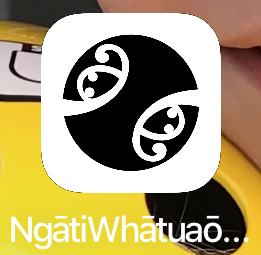
|
This app gathers information and knowledge relative to the Ngāti Whātua o ōrakei iwi (tribe). It’s a good example of an iwi led initiative that provides an accessible repository of information for their members and visitors that is both useful and encouraging. Entries are in Te Reo Māori and English which is inclusive of all users. There are sections for the history of the tribe, Te Reo Māori phrases for different occasions, waiata (songs), karakia (prayers) and general vocabulary. The app does take a while to load each page, however it would be very useful for a visitor to the rohe (area) and for any iwi (tribal) members to learn waiata (songs), karakia (prayers) or phrases that are relevant to them. |
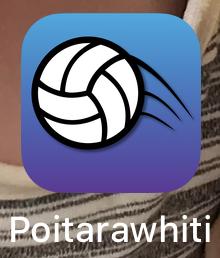
|
The Poitarawhiti app is supported by The Ministry of Māori Development. It aims to introduce vocabulary specific to netball. It’s a simplistic app which divides the vocabulary into sections such as positions and court areas, and then at the higher levels splits the vocabulary between the roles of coach, player, supporter and umpire. It would be an awesome resource for any netball team that wants to build a supportive environment for use of Te Reo Māori. A big plus for this app is the inclusion of pronunciation soundbites. |
| ← Back to Māori Mai ME |